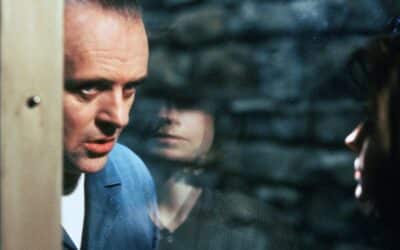
Literary Thrillers
Literary thrillers stand out in the crowded field of suspense fiction, not just for their intricate plots and high-stakes drama, but for their profound exploration of the human psyche. At their core, these novels delve into the complexities of the mind, revealing the hidden fears, obsessions, and moral ambiguities that drive human behavior.
One of the hallmarks of literary thrillers is their focus on character development and psychological depth. Unlike traditional thrillers that may rely heavily on external action, literary thrillers often place the characters’ internal struggles at the forefront of the narrative. This psychological complexity adds layers of intrigue and tension, making the unfolding mystery or crime feel intensely personal and emotionally charged.
In Patricia Highsmith’s “The Talented Mr. Ripley,” the protagonist Tom Ripley is a masterclass in psychological complexity. Highsmith meticulously peels back the layers of Ripley’s personality, exposing his deep-seated insecurities, desires, and moral flexibility. As Ripley’s actions become increasingly sinister, readers are compelled to understand his psyche, blurring the line between empathy and revulsion. This deep dive into a character’s mind creates a suspense that is as much about understanding the ‘why’ as it is about the ‘what.’
Gillian Flynn’s “Sharp Objects” is another exemplary work that showcases the psychological depth of literary thrillers. Protagonist Camille Preaker returns to her hometown to investigate a series of murders, but it’s her personal demons that drive the narrative. Flynn’s portrayal of Camille’s self-harm and troubled past offers a raw and unflinching look at how psychological trauma shapes behavior. The novel’s tension arises not just from the external mystery, but from Camille’s internal battle, making the resolution of her character arc as compelling as the uncovering of the murderer.
The psychological depth in literary thrillers often stems from the way these novels explore moral ambiguity. Characters in these stories are rarely simply good or evil; they are complex individuals with motivations that can be both relatable and unsettling. In Tana French’s “In the Woods,” Detective Rob Ryan is haunted by his childhood trauma, which intertwines with the murder case he’s investigating. French masterfully weaves together Rob’s personal history and the present mystery, exploring themes of memory, guilt, and the elusive nature of truth. This interplay between past and present, personal and professional, adds a rich psychological layer to the thriller.
Literary thrillers also excel at portraying the psychological impact of crime on both victims and perpetrators. In “Before I Go to Sleep” by S.J. Watson, the protagonist Christine suffers from anterograde amnesia, losing her memory every day. The novel’s tension is heightened by Christine’s struggle to piece together her identity and uncover the truth about her past. The psychological thriller becomes a study of memory, identity, and trust, with the suspense deeply rooted in Christine’s fragmented perception of reality.
Moreover, the genre often uses unreliable narrators to amplify psychological tension. These narrators’ distorted views and biases create a sense of unease and unpredictability. In “The Girl on the Train” by Paula Hawkins, Rachel’s alcoholism and memory lapses make her an unreliable witness to the events she observes from her train window. Her flawed perspective adds layers of complexity to the narrative, as readers must navigate her unreliable recollections to uncover the truth. This technique not only keeps the readers guessing but also immerses them in the protagonist’s troubled mind.
The psychological depth of literary thrillers lies in their ability to explore the dark recesses of the human mind with nuance and empathy. These novels invite readers to confront their own fears and moral dilemmas through the lens of richly developed characters and intricate psychological landscapes. They remind us that the most compelling mysteries are often found within ourselves, making the journey through these stories as enlightening as it is thrilling.
More Thriller Features
Myth and Thrillers
Ancient Legends and Modern Plots
Hiding Bodies
The sinister act of hiding bodies in thrillers
Morally Compromised Thrillers
Right, Wrong, and Everything in Between



